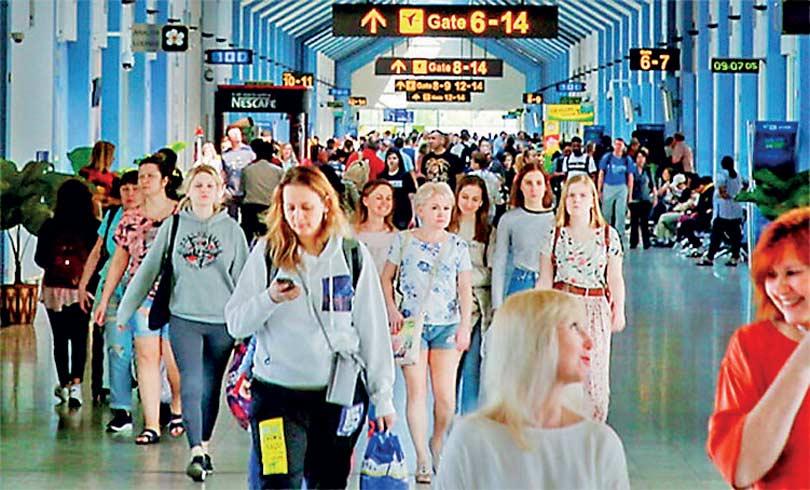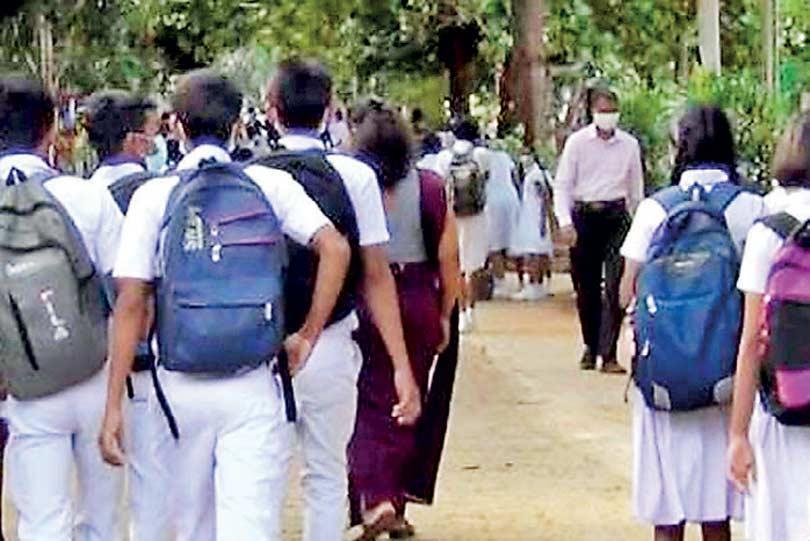Has the government mixed up its priorities?
Posted on October 4th, 2025
MOHAMED AYUB Courtesy The Daily Mirror


The proposed promotion of LGBTQIA tourism as well as abolishing the caning of children has stirred fierce debate
The LGBTQ issue has been a controversy following a letter sent by Sri Lanka Tourism Development Authority Chairman Buddhika Hewawasam to Equal Ground Executive Director Ms. Rosanna Flamer-Caldera, commending an initiative to promote and develop LGBTIQ tourism in the country
It is not clear whether it is due to a mix up of priorities or ideological obsession of certain ministers, or genuine intentions, that the government has created controversies on the so-called LGBTQ tourism and the action against corporal punishment of children, at this stage.
Already the government has presented a Bill seeking to amend the Penal Code of Sri Lanka to prohibit corporal punishment for children in all spheres, including homes, schools, and other care settings, and the Bill has been debated over a day during the last week of last month.
The LGBTQ issue has been a controversy following a letter sent by Sri Lanka Tourism Development Authority Chairman Buddhika Hewawasam to Equal Ground Executive Director Ms. Rosanna Flamer-Caldera, commending an initiative to promote and develop LGBTIQ tourism in the country.
Hewawasam in his letter had recognised the potential of LGBTQ tourism to diversify tourism markets and position Sri Lanka as a safe, inclusive, and welcoming destination for all travellers.” Equal Ground is an advocacy organisation based in Colombo, that campaigns for political, social and civilian rights for lesbian, gay, bisexual, transgender, intersex and queer (LGBTIQ) individuals.
The letter opened a can of worms for the government with nationalist groups protesting and religious leaders such as the Archbishop of Colombo, Cardinal Malcolm Ranjith and the Mahanayakes of main Buddhist chapters in the country criticising the move. Cardinal said a strange culture” is emerging in Sri Lanka, not as a result of government policy but through the actions of certain institutions.
He questioned if they realise our children, our greatest resource which must be protected, are being influenced in this way, stressing that people born homosexual should be respected and their rights safeguarded, Cardinal Ranjith cautioned against normalising homosexuality as a lifestyle.
The Mahanayaka Theras of the Malwathu, Asgiriya, Amarapura, and Ramanna Chapters on their part had written to President Anura Kumara Dissanayake expressing strong opposition to what they described as efforts to promote LGBTQ lifestyles and amend the Penal Code to outlaw corporal punishment.
In the letter, the chief prelates said certain groups were attempting to normalise homosexual conduct and related practices and warned that such moves undermine Sinhala Buddhist cultural values. They argue that despite these actions being portrayed as human rights initiatives, they threaten to erode the ethical foundation of Sri Lankan society. The prelates stated that promoting and legalising homosexual behaviour under the pretext of modern rights and freedoms, especially in a predominantly Buddhist country, will cause irreversible social harm.
Responding to the apprehensions of the religious leaders, the Tourism Ministry had issued a statement denying the purported moves to run a specific tourism promotion campaign targetting LGBTQ+ foreign tourists. The statement said that although Sri Lanka is a country that respects all genders and communities, along with their individual identities, this respect should not be misinterpreted as an endorsement or promotion of any particular type of sexual behaviour or activities.
It is true that the government or the Tourism Development Authority has not decided to run a specific tourism promotion campaign targeting overseas LGBTQ communities. Yet, the Tourism Authority endorsing such a promotion campaign is no different. In fact, what does LGBTQ tourism mean? It cannot be something other than persuading members of the overseas LGBTQ communities, especially the homosexuals, to visit Sri Lanka showing that the country has ample opportunity to enjoy their rights. Respecting the members of such communities, locals or visitors, and not engaging in humiliation of them is one thing while promoting their activities is another.
There is a growing trend in the world to recognise the LGBTQ communities and their rights, while there is also an increasing number of NGOs in many countries, working in this field. Same sex marriage has been legalised in some countries. The United Nations Human Rights Council (UNHRC) has recognised LGBT rights as human rights. It is against this backdrop that proposals are being made to conduct tourism promotion campaigns targeting LGBTQ communities.
Although the National People’s Power (NPP) government enjoys over a two thirds power in Parliament, its vote base is too vulnerable as a majority of people voted for the party at the last Presidential and Parliamentary elections out of impulsive emotion created by the 2021/2022 economic crisis, and not out of political literacy. It was evident during the last local government elections; and hence the government’s backtracking or denial of moves to LGBTQ tourism is comprehensible.
Similarly, the government has incensed certain sections of the society by bringing in the ban on corporal punishment of children without a proper awareness programme, despite however much good faith being attached to the move. The protests and apprehensions of the teachers who are one of the major stakeholders of this issue is a manifestation of it. The ban is to be introduced by an amendment to the Penal Code.
The Bill on the amendment cites several examples to explain the offences under it. A father who hits his child with a belt for not obeying his advice to study, a caregiver in a children’s home who delays a child’s food for several hours for bullying another child, and a school prefect who slaps a student for wearing a dress which violates the school dresscode would be offenders under this law, in spite of those actions deemed punishments for misconduct.
Similarly, a teacher or principal who summons a student to the stage at a school assembly and introduce that child as a thief, and humiliates him as he believes that the child had committed theft of another child’s property would also face the same fate, though his action does not cause any physical pain to the child.
Those who commit such offences could be sentenced to imprisonment for up to six months or fined an amount up to Rs. 100,000, or both sentences could be imposed on the offender. The authorities have not answered the question raised by the teachers as to how they could discipline an erring child without landing in jail, if every action they would possibly take to that end is deemed to be an offence under the new law.
Unlike a whip or a slap, however much it is deplorable, a breadwinner father ending up in jail might ruin the entire life of a child. Hence, those genuine concerns must be addressed through a healthy dialogue with teachers and other stakeholders before the Bill is passed in Parliament.